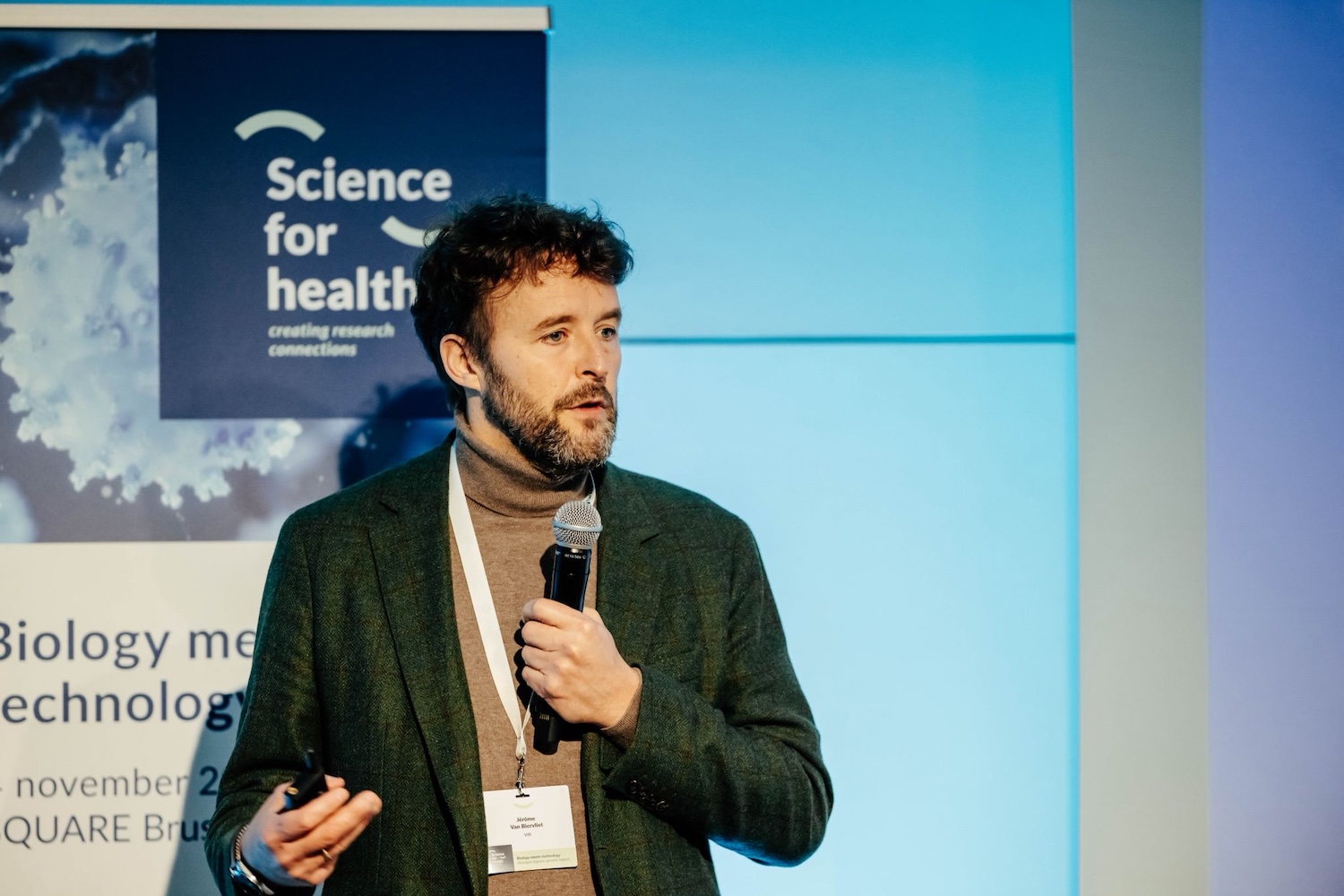Jérôme Van Biervliet, managing director of Belgium’s VIB, has called on Brussels to make access to capital the centrepiece of its forthcoming Biotech Act, warning that Europe’s fragmented markets risk driving innovation overseas.
Speaking with Euractiv at the Science for Health conference, he urged policymakers to match the pace of scientific breakthroughs with deeper, specialised financing structures.
“Biotech companies are all capital-intensive; it doesn’t matter which subsector you look at. There’s capital in Europe, but we need to make it available for high-tech investment. We’re still short of liquidity,” he said.
Europe’s fragmented investment landscape limits its ability to scale globally, he argues. “We can only solve that if we look beyond our region and our country, and build a coalition of willing Member States, standing on equal footing with ecosystems like China and the US. Without capital, nothing moves. Once capital flows, everything else follows.”
“It attracts talent, it drives deal-making, it draws pharmaceutical interest. It’s a self-fulfilling prophecy,” he continued. VIB has launched four independent venture funds. “They make real investments, and that’s what we need to keep doing.”
With capital, timing matters
The timing matters. In mid-December, the first part of the Biotech Act will be released, and expectations are high that it will finally address the funding dimension. Yet Van Biervliet remains cautious. “I don’t know, but there’s hope. Taxpayers’ money is always the most precious. We need to invest it wisely, ideally in early-stage innovation. Later on, initiatives should be taken over by private investors.”
“You can seed projects with public funds, but private capital must be mobilised to scale biotech investment.”
“The tools are there at the European level, look at the European Innovation Council,” he noted, adding that at present, though, the European Innovation Council Pathfinder’s success rate of barely two per cent leaves much to be desired. “That’s too low. We’re not getting there; we need to raise our ambitions.”
According to Van Biervliet, if public funds are limited, they should be directed to investments in what companies need most. “Those that can keep going will find the connection with private investors,” he explained, adding that initiatives like theirs, early and later stage funds, and crowd-investment structures are important, but more investment is needed.
He warned that the world is moving fast, and while Europe remains scientifically on par with, if not ahead of, the US, there is a risk of falling behind in scaling and commercialising innovation.
Beyond cell therapy
For Van Biervliet, the EU’s biotech strategy must keep pace with science. “It’s essential not to reduce ‘advanced therapies’ to cell therapy alone. That term is often used too narrowly,” he said. Advanced therapies include next-generation antibodies, antibody-drug conjugates, antibody-oligos, peptide therapeutics, molecular glues, and more, as he explained.
“So please, don’t focus on yesterday’s innovations,” he remarked, adding that cell therapies are fantastic, but there is already work on in vivo cell therapies, “the next generation.”
“That’s where innovation lies. If you invest in yesterday’s models, you’re already behind the curve.”
Belgium, he says, offers compelling proof of where Europe’s strengths lie. “Based on the expertise and talent present here in our region, we can create success stories that are still talked about in China,” he said, citing EsoBiotec’s example.
EsoBiotec is a Belgian biotech company pioneering in vivo cell therapy. In March 2025, AstraZeneca announced the acquisition of EsoBiotec for up to $1 billion, marking one of Europe’s largest cell therapy deals.
Keeping Belgium’s edge
Talking about Belgium’s diverse research ecosystem, Van Biervliet mentioned that innovation is also happening in ‘traditional’ small molecules.
“If we’re going to address diseases like Alzheimer’s or many CNS disorders, we’ll need small molecules, hopefully also other modalities. We need all of it.”
“CAR-T isn’t going to take over everything; it will remain a niche. We’ve seen spectacular results and even cures in some indications, but it’s not universal,” he pointed out, warning about the problem of getting “tunnel vision”.
“If we focus too narrowly on one area, we risk being overtaken in others such as antibody-drug conjugates, antibody-oligos, bispecifics, and many more.”
Diversity, he adds, is Belgium’s strength. “Globally, breakthroughs in these areas are being recognised, and Belgium is part of that story. We have companies here working on these innovations or adjacent fields, and we should keep building on that. Let’s create another antibody story, another success story.”
He also points to one of policymaking’s fundamental shortcomings.
“We can now use human cells, human tissues, and big data to model disease much more accurately, in cancer, neurodegeneration, and inflammation. That’s not a goal in itself; it’s a means to better understand biology. Yet policy debates often miss that point, as if one technology defines the future. It doesn’t.”
Van Biervliet cautions policymakers to invest cautiously in infrastructure for innovation. “Take cell therapy pilot facilities, for instance. There’s a major one in Leiden, the Netherlands. We should specialise in infrastructure to avoid duplication.”
As he explained, manufacturing know-how remains crucial, and anchoring it is vital, “but we shouldn’t all rush into the same thing. That creates duplication, fragmentation, and competition that’s not financially sustainable.”
And the foundation, he says, is already here, as antibodies remain the largest segment, and next-generation modalities are their evolved forms.
“Belgium has a strong foundation in innovation,” with companies like UCB and argenx, already building global success on advanced engineering.”
[VA, BM]
